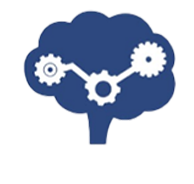Summer break provides a much-needed respite for children, offering them a chance to relax, explore new interests, and spend time with family and friends. However, the transition back to school can be challenging for both children and parents. From an educational psychologist’s perspective, here are some strategies to ease this transition and help children start the new school year on the right foot.
1. Establish House Rules and Reinforcement Schedules
Establishing house rules and a reinforcement schedule can help manage behaviour and set clear expectations for the school year. This strategy is particularly effective when combined with a well-structured timetable. Parents can identify key behaviours to focus on, such as completing homework, limiting screen time, and maintaining a clean room. Parents can then use positive reinforcement to encourage these desired behaviours by providing tokens or rewards for meeting daily or weekly goals. As the school year progresses, goals and rewards can be adjusted to stay relevant. Combining the reinforcement schedule with the daily timetable ensures consistency and predictability. Visual aids like charts and stickers can effectively help track progress and reinforce positive behaviours.
2. Limit Screen Time
While it’s tempting for children to indulge in activities like gaming and social media during the summer, excessive engagement can lead to addiction and hinder the return to academic tasks. Intensive dopamine-inducing activities can affect their attention span and focus, which are crucial for school performance. Parents can establish clear limits on screen time and encourage breaks between gaming or social media sessions. Promote a balance of activities can also be beneficial, including outdoor play, reading, and hobbies that do not involve screens. Setting these limits helps children transition back to schoolwork more smoothly.
3. Encourage Regular Aerobic Exercise
Summer is an ideal time to build the habit of regular aerobic exercise, which can significantly benefit school performance. Research shows that aerobic exercise improves attention, executive functioning, and overall cognitive performance (Hillman, Erickson, & Kramer, 2008). For instance, Hillman et al. (2008) found that regular aerobic exercise enhances children’s attention and cognitive control. Sibley and Etnier (2003) reported that physical activity is positively associated with executive functions, such as working memory and cognitive flexibility. Parents can incorporate at least 30 minutes of aerobic exercise into the daily routine and plan for family-oriented physical activities like biking, hiking, or swimming. Establishing these habits during the summer ensures they continue during the school year, even if adapted for shorter durations.
4. Re-establish Good Sleep Hygiene
Good sleep hygiene is essential for cognitive functioning and overall well-being. The end of summer break is a perfect time to focus on establishing healthy sleep habits that will benefit children once school resumes. Parents can set a consistent bedtime routine that includes winding down activities such as reading or listening to calming music. Children can be reminded to avoid screens at least an hour before bedtime to reduce blue light exposure, which can interfere with sleep. A cool, dark, and quiet bedroom can create a sleep-friendly environment. By re-establishing good sleep hygiene, children can ensure they get the rest they need to function optimally during the school year.
Conclusion
Transitioning from summer break to the new school year can be smooth and stress-free with a well-planned approach. By maintaining a daily routine, setting clear house rules with a reinforcement schedule, limiting excessive screen time, engaging in regular aerobic exercise, and re-establishing good sleep hygiene, children can start the school year with a positive and productive mindset. These strategies not only ease the transition but also lay the foundation for a successful academic year.
References:
Hillman, C. H., Erickson, K. I., & Kramer, A. F. (2008). Be smart, exercise your heart: Exercise effects on brain and cognition. Nature Reviews Neuroscience, 9(1), 58-65.Sibley, B. A., & Etnier, J. L. (2003). The relationship between physical activity and cognition in children: A meta-analysis. Pediatric Exercise Science, 15(3), 243-256.





 Contact Us
Contact Us












